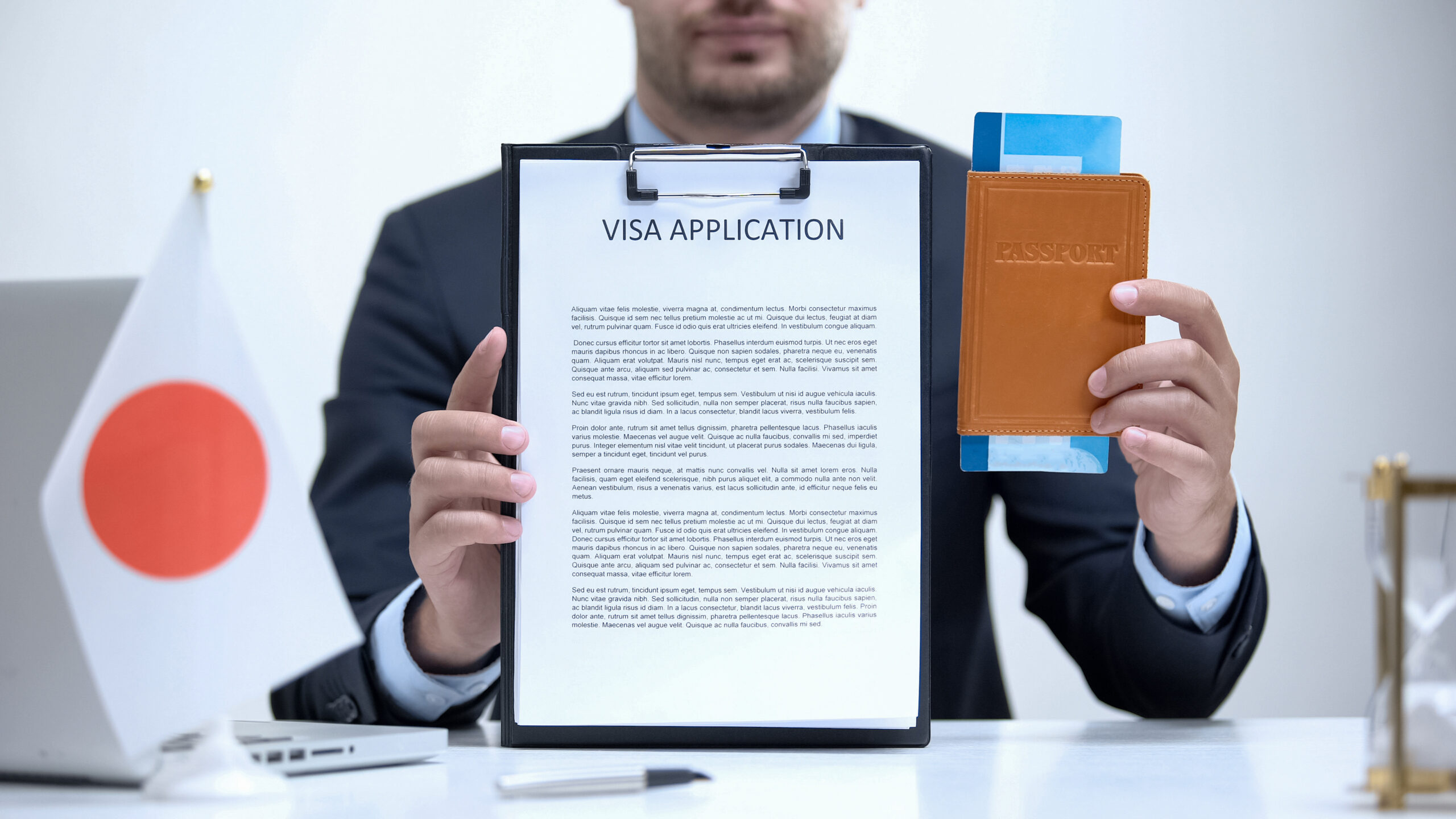The Ultimate Guide to Freelance Work in Japan for Foreign Residents

How can I successfully start freelancing in Japan as a foreigner? What do I need to know about visas and finding work?” You might be asking yourself.
Many foreign residents find that understanding the visa process, navigating the job market, and building a supportive network are crucial for a thriving freelance career in Japan.
In this article, we will provide a comprehensive guide to freelancing in Japan, covering essential topics such as visa requirements, how to find freelance opportunities, and tips for establishing a successful and sustainable career.
Understanding Freelancing in Japan as a Foreigner
Overview of the Japanese Freelance Market
The freelance market in Japan has experienced significant growth in recent years. For foreign professionals, this expanding market presents both unique opportunities and challenges. The Japanese government has been actively promoting work-style reforms, making it increasingly feasible for foreigners to pursue freelance careers.
Challenges and Opportunities for Foreign Freelancers
Foreign freelancers in Japan face several distinct challenges. The most significant hurdles include language barriers, understanding local business customs, and navigating complex visa requirements. However, these challenges are balanced by growing opportunities, particularly in sectors where international expertise is valued. Many Japanese companies are actively seeking foreign talent to help with globalization efforts and digital transformation projects.
Popular Freelancing Fields
Freelance Japanese Translator
One of the most accessible fields for foreign freelancers is translation and interpretation. The demand for skilled translators remains high, particularly in specialized areas such as:
- Technical documentation
- Marketing content
- Legal documents
- Medical translation
Beyond translation, other popular fields for foreign freelancers include:
- IT and programming
- Digital marketing
- Content creation
- English teaching
- Business consulting

Navigating the Freelance Visa Process in Japan
Types of Visas Available for Freelancers
Freelancers looking to work in Japan must understand the visa options available. The most common visa for freelancers is the “Engineer/Specialist in Humanities/International Services” visa, which caters to IT professionals, designers, and translators. Another option is the Highly Skilled Professional visa, which targets individuals with exceptional expertise and offers faster paths to permanent residency. Understanding the specific criteria and documentation required for these visas is crucial.
Freelance Work Visa Japan
While there isn’t a visa specifically termed “freelance”, certain visas accommodate freelance work under specified conditions. For example, professionals in the arts might acquire an Artist visa. The key is demonstrating a stable income from freelance activities and having contracts with Japanese companies. Consistent documentation and evidence of ongoing projects can strengthen one’s visa application.
Application Process
Applying for a freelance visa in Japan involves a systematic approach to ensure all requirements are met and the application is compelling. The process generally starts with identifying the appropriate visa category relative to the nature of your freelance work.
Japan Visa Application Freelance
- Gather Necessary Documentation:
Start by collecting all required documents, which typically include your passport, visa application form, recent photographs, and a Certificate of Eligibility (COE). The COE is an important document that often requires a sponsor such as a Japanese company or client to provide proof of your intended activities in Japan. - Demonstrate Financial Stability:
Applicants must demonstrate financial stability through bank statements or proof of income. This assures the immigration authorities that you can support yourself while living in Japan. Having a detailed business plan that includes expected earnings from freelance contracts can also strengthen your application. - Showcase Professional Experience:
Providing a comprehensive portfolio or resume that highlights your skills, past work experience, and educational background is essential. Letters of recommendation from clients or previous employers can further attest to your professional capabilities and reliability. - Secure Work Contracts:
Attaining contracts with Japanese clients or companies can be a significant advantage. These should outline the nature and duration of the work. Contracts serve as concrete proof of genuine freelance work within Japan, aligning with the immigration requirements. - Consult Immigration Specialists:
Given the complexities involved, consulting with immigration specialists or legal advisors familiar with Japan’s visa processes is advisable. These professionals can offer guidance on tailoring your application to meet specific criteria and assist in navigating any bureaucratic hurdles. - Submit Application:
Once all documents are prepared, submit your application to the Japanese embassy or consulate in your home country or directly to the immigration bureau in Japan if you are already residing there. The review process can take several weeks, and applicants should be prepared to provide additional information or attend an interview if requested.
By following these steps diligently, foreign freelancers can enhance their chances of obtaining a visa that allows them to live and work in Japan legally and successfully.

Common Questions and Discussions
Freelance Visa Japan Reddit
Online communities such as Reddit can be excellent resources for potential freelancers. Here, individuals share their experiences and advice on securing freelance visas, offering a diverse range of perspectives and practical tips. This platform allows for networking with others in similar situations, offering moral support and practical guidance during the often stressful visa application process.
Based on recent Reddit discussions and online forums, common concerns include:
Many successful freelancers recommend maintaining a stable income source while transitioning to freelance work. This approach provides financial security during the visa application process.
The most frequently discussed topics on forums include strategies for meeting the capital requirements and finding initial clients to support visa applications.
How to Successfully Freelance in Japan
Essential Skills and Tools
To succeed as a freelancer in Japan, several key skills are essential beyond your professional expertise. Business-level Japanese proficiency is highly advantageous, though not always mandatory. Understanding Japanese business etiquette and communication styles is crucial for building long-term client relationships.
Essential digital tools for freelancers include:
- Cloud-based accounting software that supports Japanese tax requirements
- Professional communication platforms popular in Japan like LINE Business, Facebook and LinkedIn
- Project management tools with Japanese language support
- Digital invoicing systems compatible with Japanese business practices
Finding Work and Clients Online
Using Freelancing Sites in Japan
The most effective Japanese freelance platforms include:
- Lancers – Japan’s largest freelance marketplace
- CrowdWorks Tech(クラウドワークス テック) – Popular for various professional services
- Levtech – Specialized in IT and engineering projects
Upwork and Other Platforms
While international platforms like Upwork can be valuable, they often require different strategies for Japanese clients. When using these platforms:
- Create profiles in both English and Japanese
- Highlight any experience working with Japanese companies
- Understand that rates may differ from global standards
Developing a Personal Brand in Tokyo
Building a personal brand is vital for freelancers wanting to stand out. In a bustling city like Tokyo, where competition is high, establishing a unique brand identity helps differentiate one’s services. Freelancers should consider creating a professional website, engaging on social media platforms, and consistently producing content that showcases their expertise and thought leadership within their industry.

Building a Network and Finding Clients in Japan
Networking Tips for Foreigners
Effective networking in Japan requires a blend of traditional Japanese business practices and modern approaches. Building relationships is crucial for long-term success.
Key strategies include:
Attending industry-specific meetups and conferences where you can meet potential clients and fellow freelancers. Tokyo, Osaka, and other major cities regularly host events specifically designed for the tech, creative, and business communities.
Joining professional organizations such as the American Chamber of Commerce in Japan (ACCJ) or similar country-specific business groups can provide valuable connections and opportunities.
Utilizing Expat and Local Communities
The expat community in Japan can be an excellent starting point for building your network. Many successful freelancers begin by:
- Participating in co-working space communities
- Joining professional slack channels and online groups
- Attending international business events
- Engaging with local chambers of commerce
Freelancing Jobs in Major Cities
Freelance Jobs Tokyo
Tokyo’s freelance market offers the most diverse opportunities in Japan. The city’s major business districts like Shibuya, Shinjuku, and Minato are hubs for:
- Technology startups seeking international talent
- Global companies requiring bilingual services
- Creative agencies looking for fresh perspectives
- Financial institutions needing specialized skills
Popular areas for finding work include:
- Tech consulting for Japanese startups
- Content creation for international markets
- Business development roles
- Translation and localization projects
The key to success in major Japanese cities is understanding the local business ecosystem and positioning yourself where your international background adds unique value.
Managing Finances and Taxes for Freelancers in Japan
Understanding Tax Obligations
Tax compliance in Japan is a crucial aspect of freelancing that requires careful attention. The Japanese tax system for freelancers involves several key components:
The income tax (所得税) operates on a progressive scale, ranging from 5% to 45%. As a freelancer, you’ll need to:
- File an annual tax return (確定申告)
- If your annual tax exceeds ¥150,000, you must pay taxes twice a year.
- Keep detailed records of all income and expenses
The consumption tax (消費税) becomes mandatory once your annual income exceeds ¥10 million. However, you can voluntarily register for it earlier if beneficial for your business.
Setting Up a Financial Plan
Establishing a solid financial management system is essential for long-term success:
Business Banking: Open a dedicated business account separate from your personal accounts. Major banks like SMBC, Mizuho, and UFJ offer business accounts suitable for freelancers.
Record Keeping: Maintain detailed records of:
- All income sources
- Business expenses
- Receipts and invoices
- Client contracts and agreements
Insurance and Pension: As a freelancer, you’re responsible for:
- National Health Insurance (国民健康保険)
- National Pension (国民年金)
- Optional private insurance coverage
Emergency Fund: Maintain a buffer of at least 3-6 months of living expenses, as payment cycles in Japan can sometimes be longer than expected.
Specialized Visas for Freelancers in Japan
Artist Visa Japan
While there isn’t a visa specifically termed “freelance”, the Artist Visa (芸術) is specifically designed for creative professionals. This visa category is suitable for:
- Professional artists
- Musicians
- Designers
- Writers
- Traditional craftspeople
Requirements typically include:
- Proof of relevant education or professional experience
- Portfolio of work
- Evidence of potential income or existing contracts
- Demonstration of artistic achievements
YouTuber and Content Creator Visas
The emergence of digital content creation has led to new visa opportunities. Content creators can typically apply through:
- Business Manager Visa for established creators
- Specified Skilled Worker Visa for certain types of content
- Entertainer Visa for performers
Key considerations include:
- Demonstrable income from content creation
- Established audience or subscriber base
- Contracts with Japanese companies or platforms
- Business plan for content creation in Japan
Highly Skilled Professional Visa
The Highly Skilled Professional Visa (高度専門職) offers significant advantages for qualified freelancers:
- Faster path to permanent residency
- Greater flexibility in activities
- Permission to bring family members
- Longer period of stay
The point-based system evaluates:
- Academic background
- Professional experience
- Annual income
- Age
- Japanese language ability
- Special achievements
This visa requires scoring 70 points or more on the evaluation scale and can be particularly beneficial for tech professionals and business consultants.
Conclusion
Establishing a successful freelance career in Japan as a foreigner is challenging but achievable with proper preparation and understanding. The key to success lies in:
Understanding and following the proper legal requirements while maintaining compliance with Japanese regulations is fundamental. This includes obtaining the appropriate visa and keeping up with tax obligations.
Building a strong professional network and understanding Japanese business culture are equally important as your technical skills. The ability to navigate both international and Japanese business environments can significantly enhance your opportunities.
The Japanese market offers unique opportunities for foreign freelancers, particularly in areas where international expertise is valued. With the right approach and dedication, freelancing can provide both professional freedom and a fulfilling life in Japan.

Q&A
What is the best site for freelancing in Japan?
For foreign freelancers, a combination of platforms typically works best. Lancers and CrowdWorks are popular among Japanese clients, while Upwork can connect you with international clients based in Japan. Choice of platform should align with your skills and target market.
How can I get a freelance visa in Japan?
The most common approach is through the Business Manager Visa or Highly Skilled Professional Visa. The process requires careful preparation of documentation, including a solid business plan, proof of capital (for Business Manager Visa), and relevant qualifications. Processing typically takes 1-3 months.
What are common fields for freelancers in Japan?
Popular fields include IT development, translation/interpretation, digital marketing, content creation, and business consulting. The demand is particularly high for professionals who can bridge international and Japanese business practices.
Do freelancers in Japan pay taxes?
Yes, freelancers must pay both income tax and resident tax. Annual tax returns (確定申告) are mandatory, and you may need to make quarterly tax prepayments. Professional tax assistance is recommended, especially in your first year.
How can I network as a foreign freelancer in Japan?
Effective networking combines online and offline approaches. Join professional organizations, attend industry events, participate in co-working spaces, and engage with both expat and local business communities. Building relationships takes time but is crucial for long-term success.
